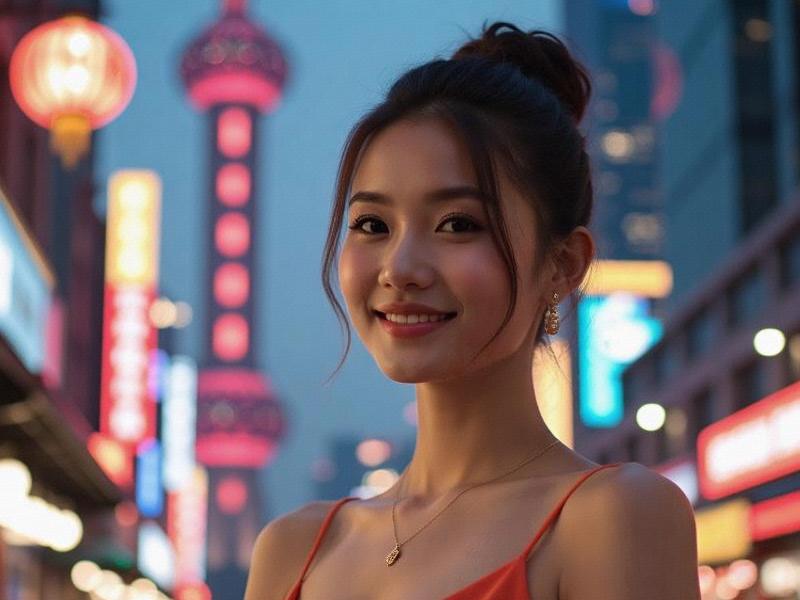
Section 1: The Reinvention of Shanghai's Entertainment Landscape
The neon lights of Shanghai's entertainment district tell a story of transformation. Where once stood rows of indistinguishable KTV parlors now rise multi-concept entertainment complexes like "Cloud Nine" - a 28-story vertical playground combining holographic karaoke, immersive theater dining, and AI-powered mixology lounges. This evolution reflects Shanghai's broader shift from manufacturing-based nightlife to experience-driven leisure economy.
Industry data reveals staggering growth: Shanghai's entertainment sector now contributes ¥87.6 billion annually to the night economy, with upscale venues accounting for 42% of tourism spending. The municipal government's "Night Shanghai" initiative has licensed 1,200 premium entertainment establishments since 2022, each required to meet strict quality and innovation standards.
Section 2: The New Generation of Hybrid Venues
At the forefront are venues like "The Bund Vault," a former bank building transformed into a members-only club where jazz musicians perform between original vault doors while mixologists craft cocktails based on patrons' biometric data. "We're creating emotional architecture," says owner Vivian Wu. "Every element - from acoustics to aromatherapy - is scientifically designed to enhance connection."
上海花千坊419 Other innovators include:
- "Silk Road Sound": A music venue where traditional Chinese instruments jam with electronic artists under 360-degree projection mapping of ancient trade routes
- "Pudong Parlor": Combining private karaoke suites with VR business meeting pods and a rooftop infinity pool
- "Memory Lane": A nostalgia-themed complex recreating 1920s Shanghai nightlife with modern safety and hygiene standards
Section 3: Technology Meets Tradition
Shanghai's entertainment venues now lead in technological integration. Face-pay systems have replaced membership cards at 78% of upscale clubs. The new "Myst" chain uses emotion-recognition AI to adjust lighting and music based on crowd mood. Meanwhile, traditional elements endure - at "Jade Pavilion," staff trained in Tang dynasty hospitality rituals serve drinks using augmented reality menus.
爱上海同城对对碰交友论坛 The safety revolution is equally impressive. All licensed venues now feature:
- Real-time air quality monitoring
- Smart wristbands that vibrate when guests exceed alcohol limits
- Emergency response systems linked directly to neighborhood police AI hubs
Section 4: Cultural Diplomacy Through Entertainment
Shanghai's entertainment scene has become an unexpected soft power tool. The government's "Window Club" program partners luxury venues with cultural institutions to host curated experiences for international visitors. At "Harmony House," foreign executives learn Chinese negotiation styles through interactive theater while sampling regional cuisines.
上海品茶论坛 This cultural fusion extends to staffing. Top venues now employ "experience ambassadors" - multilingual performers educated in both Western cocktail culture and Chinese tea ceremonies. The result? Entertainment that feels simultaneously global and distinctly Shanghainese.
Section 5: Sustainable Nightlife Innovations
Environmental consciousness has reached Shanghai's nightlife. Carbon-neutral clubs like "EcoRhythm" generate power from kinetic dance floors. The "Zero Waste Initiative" has 340 participating venues recycling 92% of their disposables. Even cocktail menus have gone green - "Botanical Bar" serves drinks with herbs grown in its vertical garden, reducing transportation emissions by 67%.
Conclusion: The Future of Urban Entertainment
As Shanghai prepares to host the 2026 World Leisure Expo, its entertainment venues stand as testaments to urban innovation. They've achieved what few global cities have - creating nightlife experiences that are technologically advanced yet culturally rooted, luxurious yet responsible, exclusive yet welcoming. In doing so, they haven't just changed how Shanghai plays - they've redefined what entertainment means in the 21st century metropolis.
